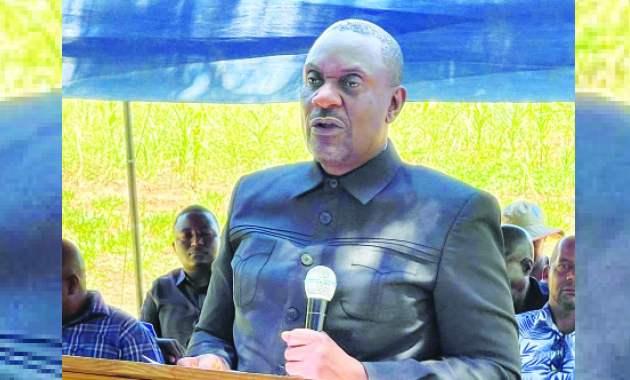Cecil: what’s going on?
Kennedy Mavhumashava Assistant Editor
AT LEAST five British national newspapers yesterday screamed in front page stories about Cecil, the lion that was killed by an American tourist, Walter Palmer, on July 1 at a game farm in Gwayi Conservancy.
The Telegraph, The Guardian, Metro, The Mirror and The Independent — all British heavyweights — ran with the story, condemning Palmer, a dentist from Minnesota, for taking down Cecil after paying $50,000 for the hunt.
The lion was also a big news item on Sky News, the BBC and CNN. Many American news outlets, including The New York Times gave Cecil much prominence too.
Why such an outpouring of grief in the West over one lion? This is certainly not the first successful lion hunt in Zimbabwe, Africa or the world over, and will not be the last. So why so much interest? The name Cecil perhaps, given its historical significance for white monopoly capital in Southern Africa and the West? Many believe the lion was named after Cecil John Rhodes, the celebrated forerunner of British colonialism in Southern Africa, explaining the saturation coverage on the demise of his namesake.
Those who believe the interest is bigger than a mere lion could be justified as Cecil, who roamed the Hwange National Park, was the focal point of a research project by Oxford University, Cecil the colonialist’s Alma mater. Rhodes learnt at Oriel College, a constituent college of the University of Oxford in Oxford, England, for only one term in 1873.
Theodro Bronkhorst, 52, of Bulawayo, who facilitated the killing appeared before Hwange magistrate Lindiwe Maphosa yesterday facing a charge of failing to prevent an unlawful hunt.
Johnny Rodrigues, a local conservationist, was quoted by the BBC saying Cecil’s killing was tragic. “He never bothered anybody,” Rodrigues said of the king of the jungle. “He was one of the most beautiful animals to look at.”
Other media reckoned Cecil was “Africa’s most famous lion.” A small demonstration was staged at his home proclaiming Palmer as a brute who kills animals for fun. The walls of the dentist’s surgery were taken over by an artist who painted them with an artistic image of Cecil yesterday.
Commenters took to social media platforms to vent anger on Palmer.
“You utter scum,” said one of the many hostile comments directed at the dentist. “You should be in jail, and you should hang your head in shame.”
An online group known as Care2 came up with a petition which attracted as many as 400,000 signatures of people condemning the hunt.
On Tuesday, Betty McCollum, an American lawmaker, urged the U.S. Fish and Wildlife Service and the Department of Justice to investigate whether the killing violated any endangered-species laws.
Figures on the lion population in Zimbabwe are hard to come by like the beast of stealth itself, far harder than the elephant’s, for example, but Cecil was not our only lion. It was one of tens of thousands of lions in the country. They are a critical species on the food chain and are equally critical to the tourism sector. Safari hunters kill them, mainly for fun, like Palmer did. He and many others like him pay lots of money that sustain jobs in the tourism sub-sector. Other tourists pay only to view lions and take their photographs.
Indeed, the country benefits a lot from its wildlife as operators pay tax and a fraction of hunting fees is ploughed back into game conservation.
If the killing of Cecil, which happened outside the Park’s boundaries, is found to be illegal, let the chips fall where they may. But I find the western outrage over the demise of Cecil, which is only a lion to many of us, suspicious. This was a simple hunt and Zimbabwe wants more of them to generate revenue for our tourism sector.
It is not an overstatement that almost 99,99 percent of Zimbabweans didn’t know about this animal until Monday. Now we have just learnt, thanks to the British media, that we had Africa’s most famous lion all along, an icon!
Zimbabweans are rightly outraged though about this specific hunt, not because of the suspect Anglo-Saxon response to it, but because of information released by prosecutors that the cat was not listed on safari farmer, Honest Trymore Ndlovu’s hunting quota for this year. This renders the killing a poaching incident which must be condemned.
But the Western media’s obsession with Cecil gets us thinking. Why only him? What’s going on?
Yet in the cloud of suspicion and overreaction, it is also true Zimbabwe can make profit out of this incident. The world must know we have tens of thousands of Cecils, only they are not wearing collars, and are not named after colonialists.










Comments